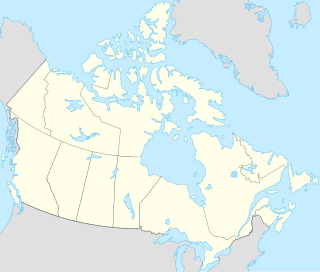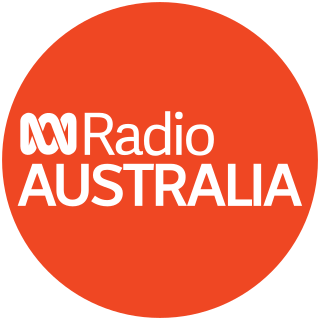
The BBC World Service is an international broadcaster, owned and operated by the BBC. It is the world's largest of any kind. It broadcasts radio news, speech and discussions in more than 40 languages to many parts of the world on analogue and digital shortwave platforms, internet streaming, podcasting, satellite, DAB, FM and MW relays. In 2015, The World Service reached an average of 210 million people a week. In November 2016, the BBC announced that it would start broadcasting in additional languages including Amharic and Igbo, in its biggest expansion since the 1940s.

Voice of America (VOA) is a U.S. multimedia agency which serves as the United States government institution for non-military, external broadcasting. It is the largest U.S. international broadcaster. VOA produces digital, TV, and radio content in 47 languages which it distributes to affiliate stations around the globe. It is primarily viewed by foreign audiences, so VOA programming has an influence on public opinion abroad regarding the United States and its people.
International broadcasting is broadcasting that is deliberately aimed at a foreign, rather than a domestic, audience. It usually is broadcast by means of longwave, mediumwave, or shortwave radio, but in recent years has also used direct satellite broadcasting and the internet as means of reaching audiences.

Deutsche Welle or DW is a German public international broadcaster funded by the German federal tax budget. The service is available in 30 languages. DW's satellite television service consists of channels in English, German, Spanish, and Arabic. While funded by the government, the work of DW is regulated by the Deutsche Welle Act, meaning that content is intended to be independent of government influence. DW is a member of the European Broadcasting Union (EBU).
Radio Canada International (RCI) is the international broadcasting service of the Canadian Broadcasting Corporation (CBC). Prior to 1970, RCI was known as the CBC International Service. The broadcasting service was also previously referred to as the Voice of Canada, broadcasting on shortwave from powerful transmitters in Sackville, New Brunswick. "In its heyday", said Radio World magazine, "Radio Canada International was one of the world's most listened-to international shortwave broadcasters". However, shortwave services were terminated in June 2012, and RCI became accessible exclusively via the Internet. It also reduced its services to five languages and ended production of its own news service.
Radio Netherlands Worldwide was a public radio and television network based in Hilversum, producing and transmitting programmes for international audiences outside the Netherlands. Radio Netherlands Worldwide also distributed content via web and e-mail technology from as early as 1992.

Radio Havana Cuba is the official government-run international broadcasting station of Cuba. It can be heard in many parts of the world including the United States on shortwave frequencies. Radio Havana, along with Radio Rebelde, Cubavision Television and other Cuban Radio and Television broadcasts to North, Central and South America via free-to-air programming from the Hispanisat satellite over the Atlantic Ocean and via Internet streaming.
China Radio International (CRI) is a state-controlled international radio broadcaster of China. It is currently headquartered in Babaoshan area of Beijing's Shijingshan District. It was founded on December 3, 1941, as Radio Peking. It later adopted the pinyin form Radio Beijing.

Radio Berlin International was the international broadcaster for the German Democratic Republic.

Shortwave listening, or SWLing, is the hobby of listening to shortwave radio broadcasts located on frequencies between 1700 kHz and 30 MHz. Listeners range from casual users seeking international news and entertainment programming, to hobbyists immersed in the technical aspects of radio reception and collecting official confirmations that document their reception of distant broadcasts (DXing). In some developing countries, shortwave listening enables remote communities to obtain regional programming traditionally provided by local medium wave AM broadcasters. In 2002, the number of households that were capable of shortwave listening was estimated to be in the hundreds of millions.
Shortwave broadcasting in the United States allows private ownership of commercial and non-commercial shortwave stations that are not relays of existing AM/MW or FM radio stations, as are common in Africa, Europe, Asia, Oceania except Australia and Latin America. In addition to private broadcasters, the United States also has government broadcasters and relay stations for international public broadcasters. Most privately owned shortwave stations have been religious broadcasters, either wholly owned and programmed by Roman Catholic and evangelical Protestant charities or offering brokered programming consisting primarily of religious broadcasters. To better reach other continents of the world, several stations are located in far-flung US territories. Shortwave stations in the USA are not permitted to operate exclusively for a domestic audience; they are subject to antenna and power requirements to reach an international audience.

CBC North is the Canadian Broadcasting Corporation's radio and television service in Northern Canada. It began operations in 1958 as the CBC Northern Service with radio broadcasts. It took over CFYK, a community-run station in Yellowknife, Northwest Territories, which began broadcasting in 1948. CFYK had been opened by the Royal Canadian Corps of Signals.

Radio Australia is the international broadcasting and online service operated by the Australian Broadcasting Corporation (ABC), Australia's public broadcaster. Most programming is in English, with some in Tok Pisin and French.

WPHT is a commercial AM radio station licensed to serve Philadelphia, Pennsylvania. The station is owned by Entercom and broadcasts a talk radio format. Its transmitter and broadcast tower are located in Moorestown, New Jersey and its studios are at 400 Market Street in Philadelphia.
WRMI is a shortwave radio station broadcasting from Okeechobee, Florida, United States. WRMI is a commercial radio station that sells airtime to businesses and organizations. It also relays several international news stations including Radio Ukraine International, Radio Slovakia International, Radio Tirana, Radio France International, Famagusta Gazette Radio, Radio Prague, the Italian Broadcasting Corporation, NHK World Radio Japan, Radio Taiwan International, and Radiodifusión Argentina al Exterior, all of which, except for the last, would otherwise be difficult to receive in the Western Hemisphere. It also features headline news stories from the Voice of America, several religious programs, as well as original and syndicated programs. According to its 1996 station record from the Federal Communications Commission, WRMI's broadcast target zones were the Caribbean, Central America and South America. In particular, much of its programming was targeted towards Cuba. However, as of 2016, WRMI had 23 antennas targeting many zones worldwide. Its broadcasts are also easily received in the United States and Canada. WRMI airs programs in English, Spanish, French, Portuguese, Italian, and Slovak.

Radio Taiwan International is the English name and call sign of the international radio service, the Central Broadcasting System (CBS) of the Republic of China, commonly known as Taiwan. It is a government-owned station that broadcasts in 13 languages around the world, with a majority emphasis on Mandarin and Taiwanese-language broadcasts over shortwave into China.
The Happy Station Show is the world's oldest international radio programme still being broadcast, having originated 91 years earlier in 1928 on shortwave radio, and is also the second oldest radio show still on the air behind only the Grand Ole Opry, which began three years earlier. Happy Station's run had been interrupted twice — from 1940 until 1946 due to World War II and again from 1995 when it was cancelled until its revival in 2009. The revived programme is not affiliated with Radio Netherlands Worldwide or RNW Media.
United Nations Radio was created on 13 February 1946 and has reinvented itself over the decades to remain one of the most effective and far-reaching traditional media available to the United Nations family. In 2017, United Nations Radio and the UN News Centre merged to form UN News, producing daily news and multimedia content in Arabic, Chinese, English, French, Swahili, Portuguese, Russian, Spanish, and Hindi. In its new iteration, UN News Audio continues to produce daily news and feature stories about the work of the UN and its member countries in eight languages for more than 2,000 partner radio stations around the world.
PCJJ was a pioneering shortwave radio station in the Netherlands operated by Philips Radio on behalf of Philips Laboratories, a division of Philips Electronics. It was the first shortwave radio station in Europe, and the first dedicated shortwave radio station in the world - previous stations had simulcast AM/medium wave broadcasts.










